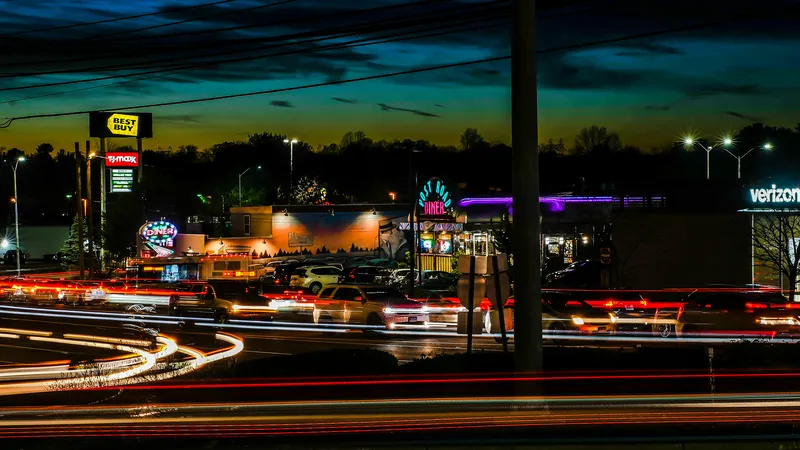The American Trucking Association (ATA) and NATSO, the national association representing truck-stops and travel plazas have commended the House Transportation and Infrastructure Committee for passing the long-term Surface Transportation Reauthorization and Reform Act of 2015 (STRRA), with some concerns.
ATA president and CEO Bill Graves urged House leaders to take the next step quickly, saying, “While we're anxious to see the funding portion of the bill, the roadmap laid out by this legislation is a good
October 26, 2015
Read time: 2 mins
The 4626 American Trucking Association (ATA) and 7486 NATSO, the national association representing truck-stops and travel plazas have commended the House Transportation and Infrastructure Committee for passing the long-term Surface Transportation Reauthorization and Reform Act of 2015 (STRRA), with some concerns.
ATA president and CEO Bill Graves urged House leaders to take the next step quickly, saying, “While we're anxious to see the funding portion of the bill, the roadmap laid out by this legislation is a good one for highway safety and efficiency.
"We're pleased the Committee's bill clamps down on the expansion of tolling and establishes a dedicated freight fund – two positive steps not just for trucking, but for consumers, shippers and the economy. Now, we urge leaders in the House to take the next step and bring this long-term bill, with a funding component, to the floor as soon as possible."
NATSO, however, expressed concern with a provision of the STRRA that would amend the program commonly known as the interstate tolling pilot program.
Tolling federal interstates is prohibited under federal law except for three states that permitted under the Interstate Rehabilitation and Reconstruction Pilot Program (ISRRPP). STRRA would amend the ISRRPP to impose a ‘use it or lose it’ rule on state pilot projects, where states have a three-year deadline to obtain tolling approval under the pilot program, after which time the slot could be transferred to another state.
This provision lowers the bar for approval of pilot programs and would make it more difficult for the public to challenge pilot program approvals.
Unlike the Senate's Drive Act put forth in July, the STRAA does not include language that would allow funds collected through tolls to be diverted to projects outside of improvements to that road.
"We appreciate the Transportation and Infrastructure Committee's commitment to moving forward a multi-year bill that puts us closer to passage of a robust federal highway program," said NATSO President and CEO Lisa Mullings. "However, we don't support tolls on existing highways. Tolls are an inefficient, counter-productive means of raising revenue for the nation's highways. As the House works to finalize legislation before the October 29 expiration of current highway law, we urge Congress to repeal the tolling pilot program."
ATA president and CEO Bill Graves urged House leaders to take the next step quickly, saying, “While we're anxious to see the funding portion of the bill, the roadmap laid out by this legislation is a good one for highway safety and efficiency.
"We're pleased the Committee's bill clamps down on the expansion of tolling and establishes a dedicated freight fund – two positive steps not just for trucking, but for consumers, shippers and the economy. Now, we urge leaders in the House to take the next step and bring this long-term bill, with a funding component, to the floor as soon as possible."
NATSO, however, expressed concern with a provision of the STRRA that would amend the program commonly known as the interstate tolling pilot program.
Tolling federal interstates is prohibited under federal law except for three states that permitted under the Interstate Rehabilitation and Reconstruction Pilot Program (ISRRPP). STRRA would amend the ISRRPP to impose a ‘use it or lose it’ rule on state pilot projects, where states have a three-year deadline to obtain tolling approval under the pilot program, after which time the slot could be transferred to another state.
This provision lowers the bar for approval of pilot programs and would make it more difficult for the public to challenge pilot program approvals.
Unlike the Senate's Drive Act put forth in July, the STRAA does not include language that would allow funds collected through tolls to be diverted to projects outside of improvements to that road.
"We appreciate the Transportation and Infrastructure Committee's commitment to moving forward a multi-year bill that puts us closer to passage of a robust federal highway program," said NATSO President and CEO Lisa Mullings. "However, we don't support tolls on existing highways. Tolls are an inefficient, counter-productive means of raising revenue for the nation's highways. As the House works to finalize legislation before the October 29 expiration of current highway law, we urge Congress to repeal the tolling pilot program."










